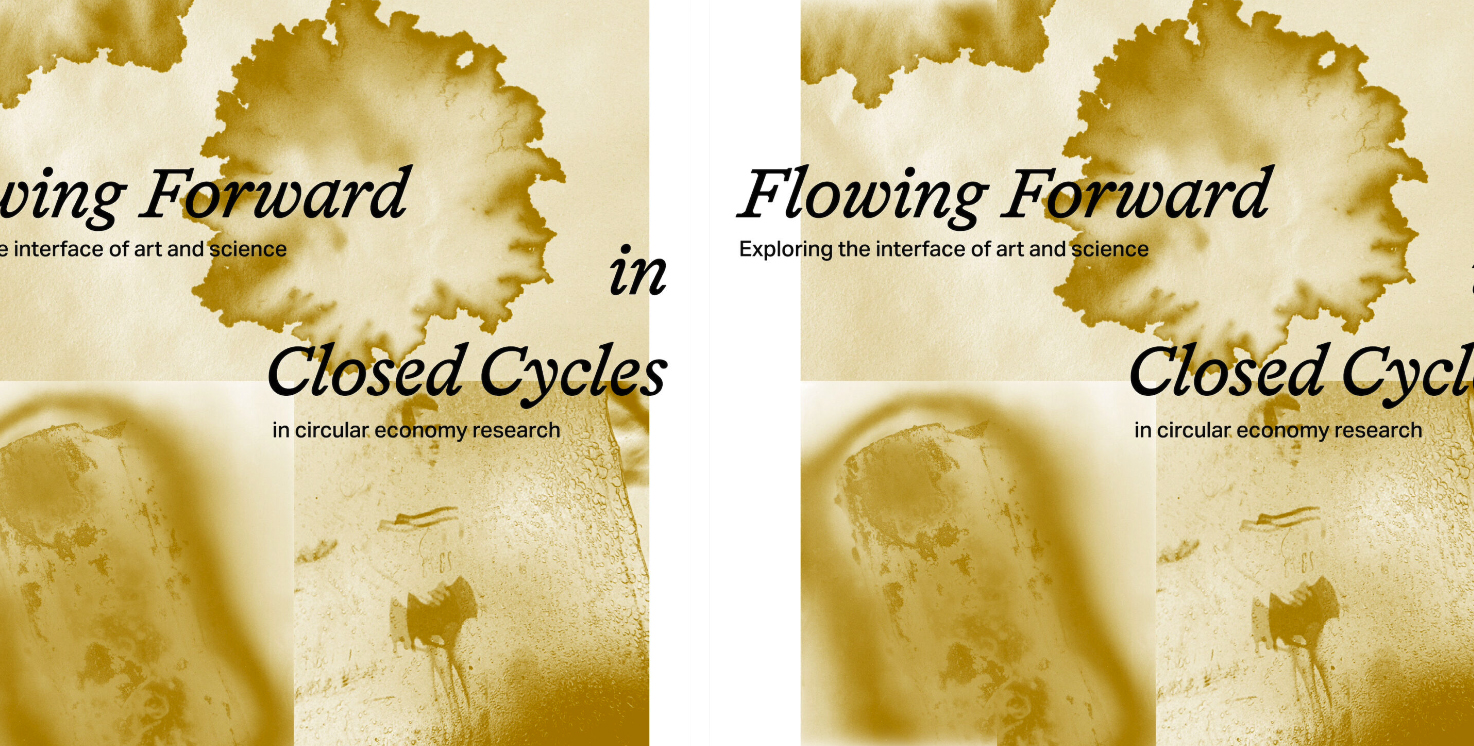Paradise
West x KABK
Ongoing (open during events)West x KABK
Paradise
West x KABK
Ongoing (open during events)West x KABK

Paradise 5
Students in collaboration with NWO
29.06.2024-28.07.2024: 12:00 - 17:00 every Fridays and Saturday
Three fourth-year students of the Bachelor’s programme Photography collaborated with the Netherlands Organisation for Scientific Research (NWO) on Closed Cycles. The NWO Closed Cycles programme contributes to the transition to a circular economy. From 28 June to 28 July the results can be viewed in Paradise.
The Dutch Research Council (NWO) and KABK have initiated a project that invited three Bachelor's Photography students of year 4 into NWO’s research programme Closed Cycles.
Anna Andrejew, Mayte Breed & Nesie Junyi Wang embarked on an eight-month collaborative journey with academic researchers, gaining deep insights into the scientific interplay between water management and waste recycling. They explored connections between scientific and artistic research which resulted in innovative visual ways for communicating knowledge & complex ideas to a wider audience.
Earlier the results were presented in the form of exhibition, including a performance and workshop, during NWO Life 2024 scientific conference in Egmond aan Zee.
Students:
Anna Andrejew - ‘Be Like Water’
NWO project investigated the reuse of residual water for agricultural purposes. Corn crops were irrigated with wastewater, while the level of contamination of water and the movement of water in the soil were studied. Anna made paper out of corn leaves, and used photosensitive liquids to show the movement of water over time.
Mayte Breed - ‘Hydrogen Bonds’
The project is centred on soil purification, subsurface water, groundwater levels, and water regulations. Egmond is Mayte’s hometown, so she focused on its community and the current floods in the dune lands. Mayte used the stagnated water emulsion lifts to print images of Egmond communal activities, collected from the National Archive, on recycled plexiglas.
Nesie Junyi Wang - ‘Kaumera Combustions’
Kaumera is a biopolymer recycled from wastewater. Inspired by research into its fire retardant properties, with support from researchers at TU Delft and KABK workshops, Nesie printed Kaumera on steel and ceramics, then processed the prints under flame.
Students in collaboration with NWO
Opening
28.06.2024: 11:00-20:00
Exhibition hours
29.06.2024: 11:00-20:00
29.06.2024-28.07.2024: 12:00 - 17:00 every Fridays and Saturday
Location
Paradise, Groenewegje 136, 2515 LR The Hague
Three fourth-year students of the Bachelor’s programme Photography collaborated with the Netherlands Organisation for Scientific Research (NWO) on Closed Cycles. The NWO Closed Cycles programme contributes to the transition to a circular economy. From 28 June to 28 July the results can be viewed in Paradise.
The Dutch Research Council (NWO) and KABK have initiated a project that invited three Bachelor's Photography students of year 4 into NWO’s research programme Closed Cycles.
Anna Andrejew, Mayte Breed & Nesie Junyi Wang embarked on an eight-month collaborative journey with academic researchers, gaining deep insights into the scientific interplay between water management and waste recycling. They explored connections between scientific and artistic research which resulted in innovative visual ways for communicating knowledge & complex ideas to a wider audience.
Earlier the results were presented in the form of exhibition, including a performance and workshop, during NWO Life 2024 scientific conference in Egmond aan Zee.
Students:
Anna Andrejew - ‘Be Like Water’
NWO project investigated the reuse of residual water for agricultural purposes. Corn crops were irrigated with wastewater, while the level of contamination of water and the movement of water in the soil were studied. Anna made paper out of corn leaves, and used photosensitive liquids to show the movement of water over time.
Mayte Breed - ‘Hydrogen Bonds’
The project is centred on soil purification, subsurface water, groundwater levels, and water regulations. Egmond is Mayte’s hometown, so she focused on its community and the current floods in the dune lands. Mayte used the stagnated water emulsion lifts to print images of Egmond communal activities, collected from the National Archive, on recycled plexiglas.
Nesie Junyi Wang - ‘Kaumera Combustions’
Kaumera is a biopolymer recycled from wastewater. Inspired by research into its fire retardant properties, with support from researchers at TU Delft and KABK workshops, Nesie printed Kaumera on steel and ceramics, then processed the prints under flame.

 previous
previous next
next